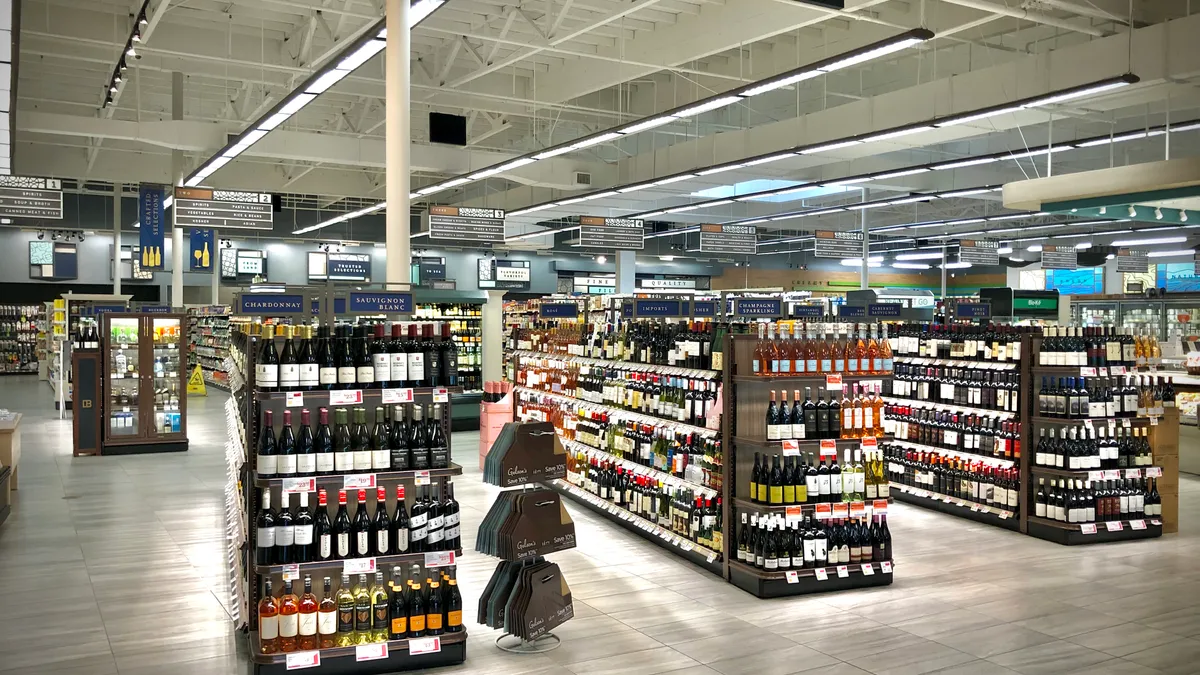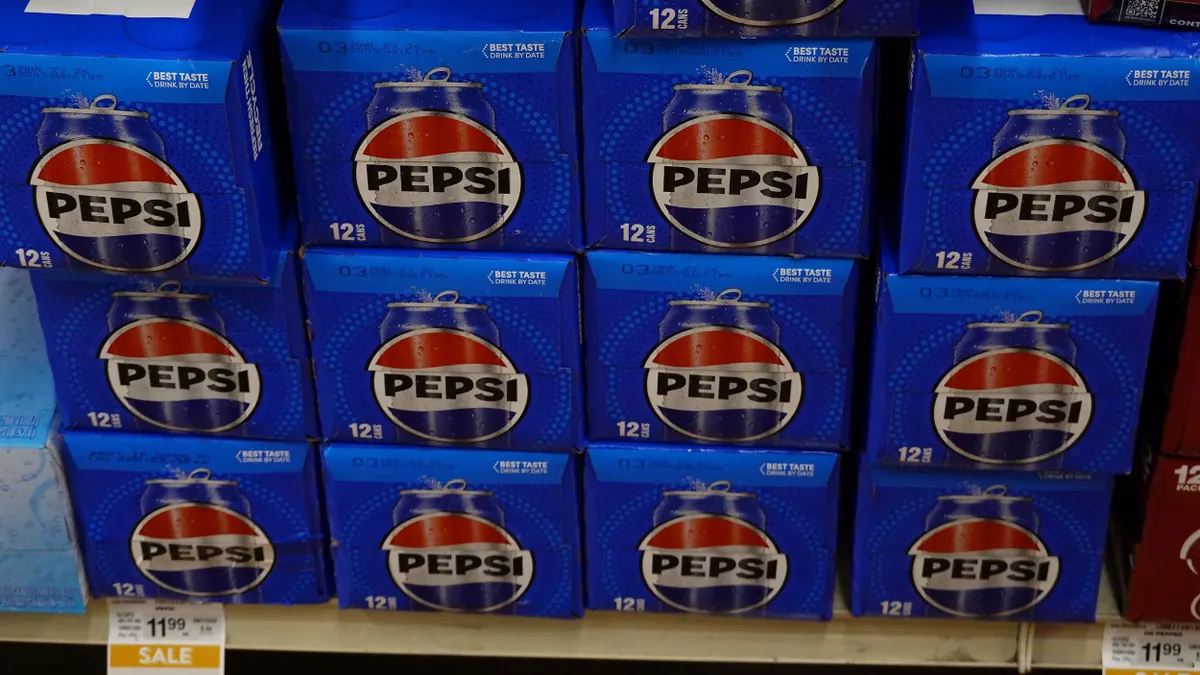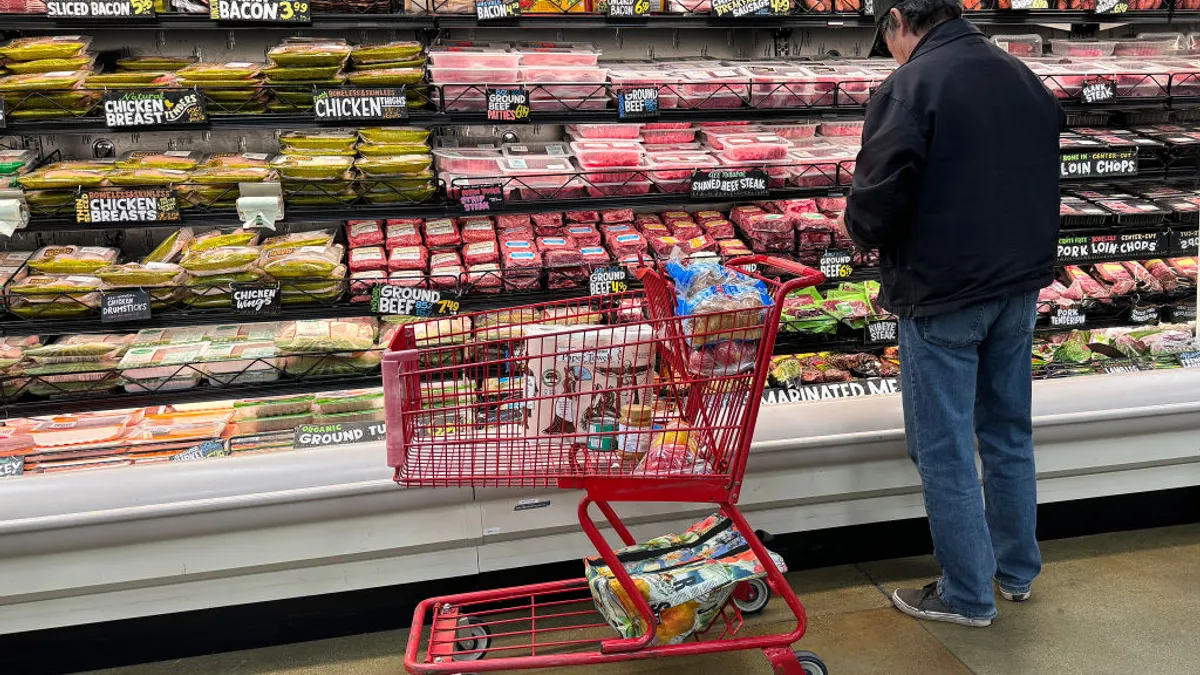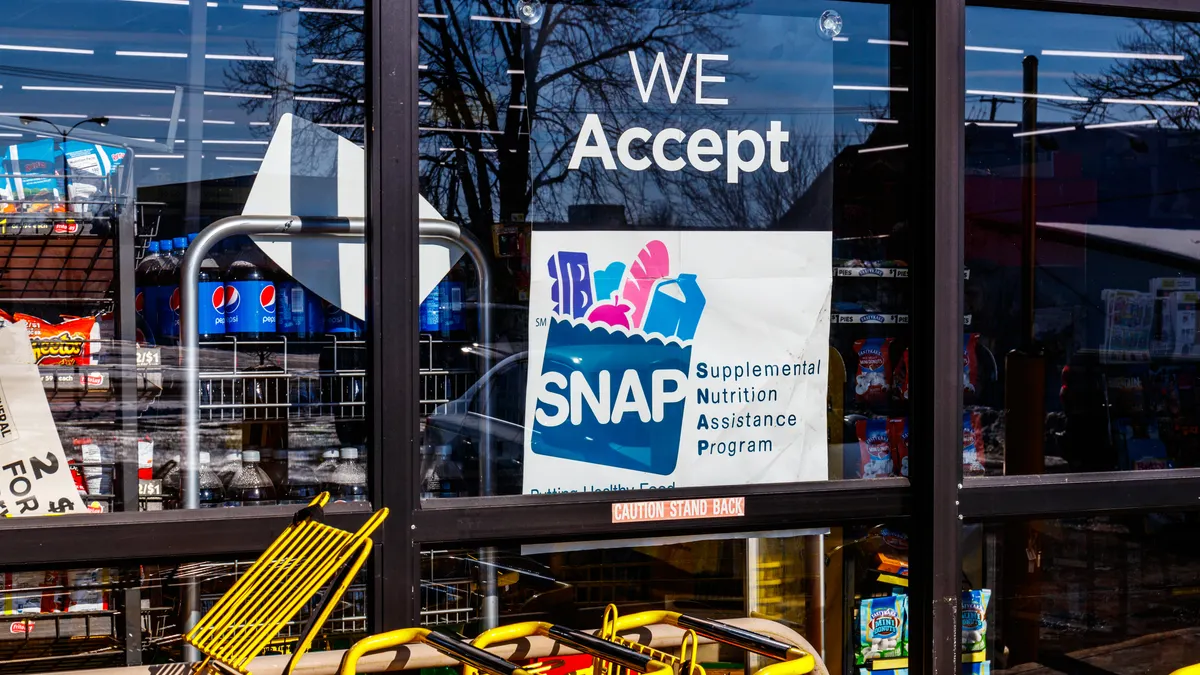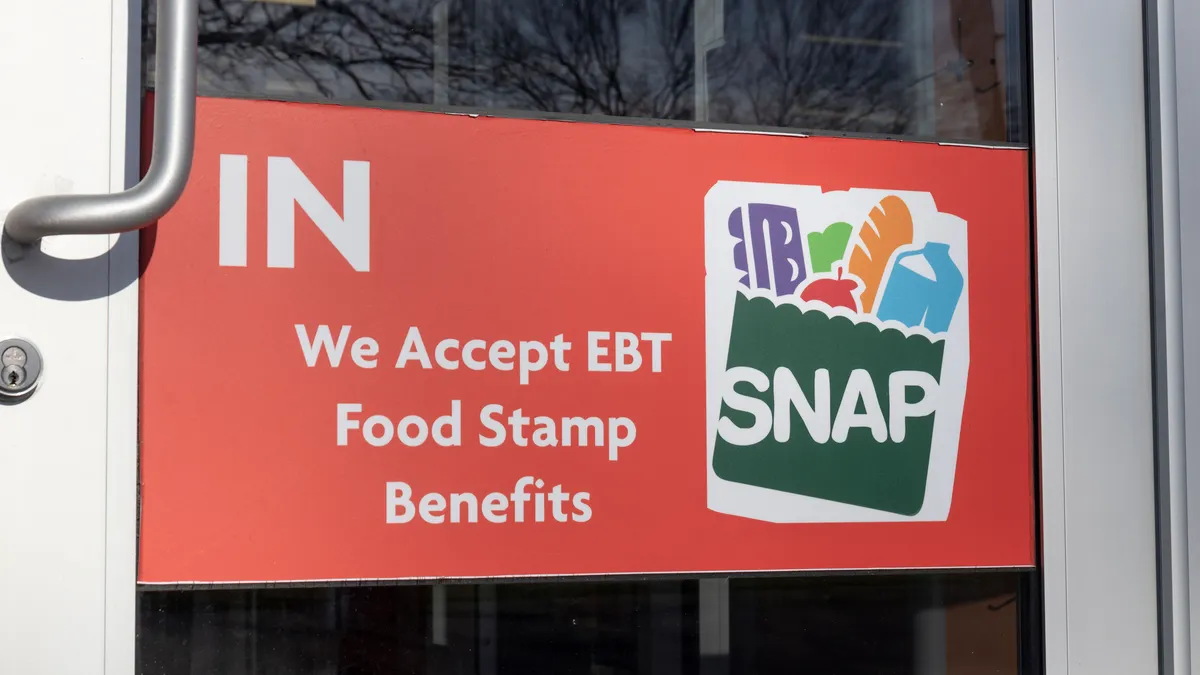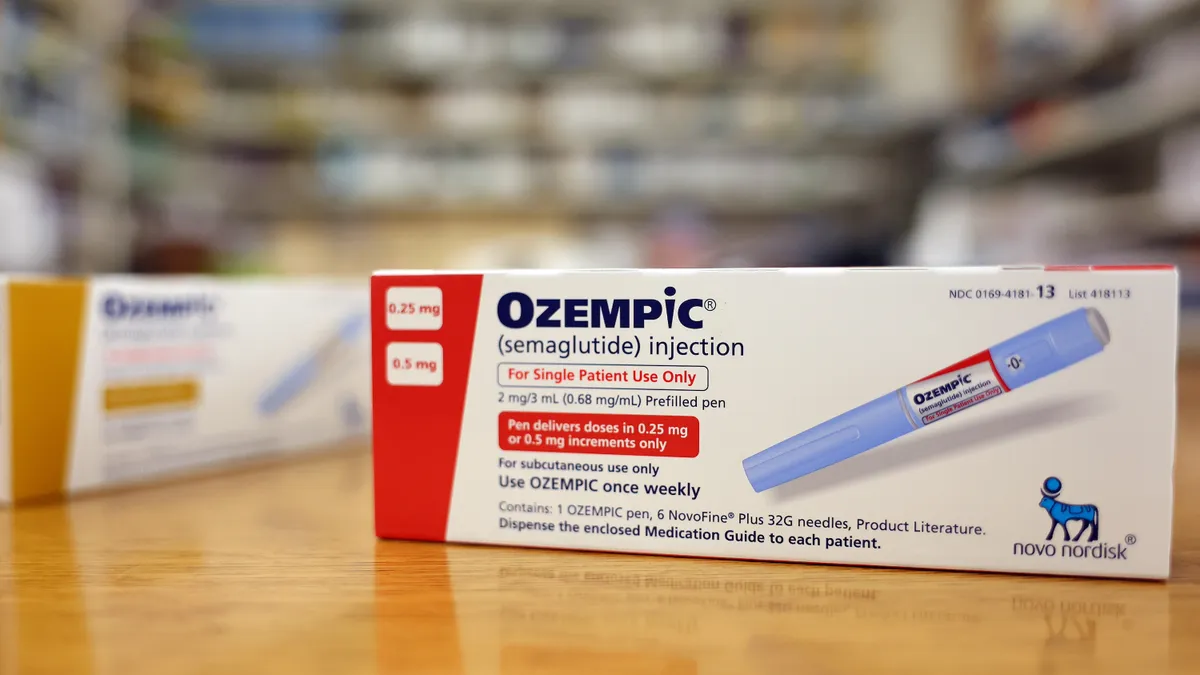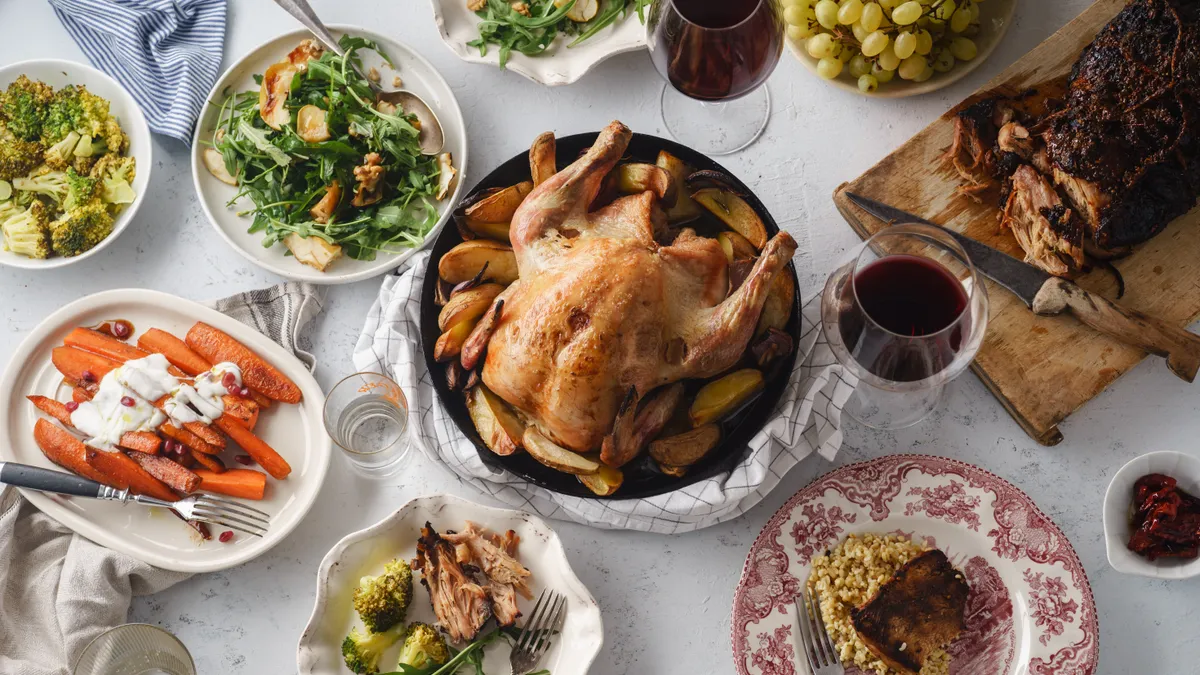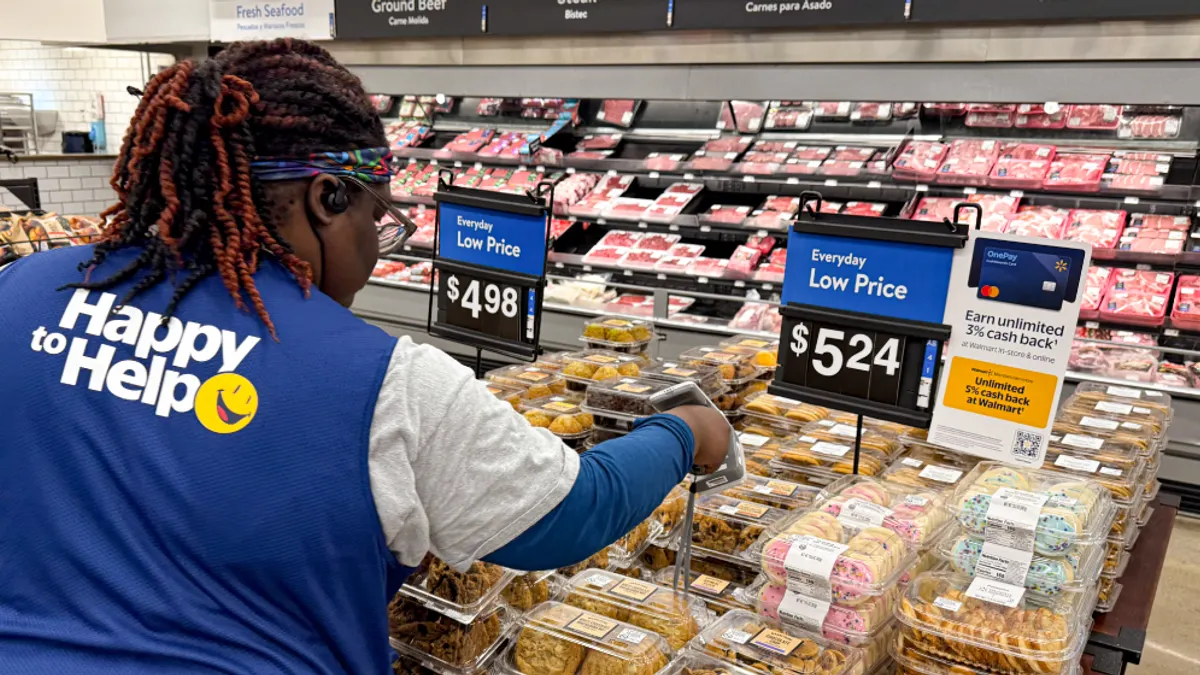"On Special" is a monthly look at top store categories and the retailers that specialize in them.
Giving shoppers chances to have in-store experiences with alcohol has been difficult for grocers due to pandemic safety concerns, but Gelson's Markets has found successful workarounds.
After temporarily closing its wine bars and pausing in-store tastings, the Southern California grocery chain turned to virtual tastings, with some featuring celebrities who have their own alcohol brands. The upscale grocer is also preparing to open more wine bars and add more wines by the glass at each bar, said Ray Brych, Gelson's category manager for wine, beer and spirits.
Following the reopening of its 13 wine bars a few months ago, traffic has picked up at these gathering spots, and roughly half of the locations are seeing the same amount of people as pre-pandemic, Brych said.
Gelson's, which has its alcohol assortment split roughly 65% wine, 20% spirits and 15% beer, places a premium on quality, one-of-a-kind offerings and building customer trust when it comes to its alcohol offerings.
 Best-sellers
Best-sellers
Tequila sales have boomed recently, jumping from its No. 3 spot to surpass vodka as the No. 1 spirit sold by Gelson's, Brych said. Among tequila, higher-dollar bottles are popular and brands like Casamigos are flying off of shelves. "We’re trying to get as much as we can whenever we can get it," Brych said. "But when we get it, it’s gone."
Gelson's is also selling a lot of hard seltzer and saw a spike in sales recently as the seltzer craze continues, he said.
 What's trending?
What's trending?
Brych said he's seeing customers shift toward buying larger-size bottles of spirits, noting 1.75-liter bottles of Tito's vodka have been popular lately. With people staying inside more since the pandemic started, he's continuing to see customers stock up on and treat themselves more often to higher-end wines: "The Saturday bottles are the Tuesday night bottles."
Gelson's shoppers have also doubled down on brand loyalty in the alcohol department during the pandemic, with people tending to stick to names they are familiar with. Gelson's has made sure to keep larger brands available, while also looking for ways, like digital promotions and spotlights in its newsletter, to incentivize trial of unique, lesser-known offerings for a treasure hunt shopping experience.
"[We’re] trying to educate our store staff to let people know, ‘If you like this, you’re going to like this, this, this and this, too,'" Brych said.
Tapping into higher-end private label wine
Brych joined Gelson's about a month after the grocer debuted its private label wine in 2017 with a handful of varietals made by winemaker Doug Margerum in Santa Barbara. A broker connected Brych with Napa Valley winemaker Julien Fayard, which led to the launch of Gelson's first rosé in late summer 2018.
Initially selling wines in the $17-$35 range, Gelson's has more recently launched higher price varietals, like a $50 Reserve cabernet sauvignon it released two years ago that had a 2017 vintage.
“We were a little nervous, thinking, 'Are people going to buy a $50 private label bottle?'” Brych recalled. "I was scratching my head going, 'I don't know. I hope so. I would, especially if I knew who it was made by.'"
Gelson's is continuing its tradition of adding private label wines ahead of the holiday season by launching two wines made by Julien Fayard this fall: a $40 Napa Valley cabernet sauvignon from Mt. Veeder and $80 Epicure Series cabernet sauvignon from Howell Mountain. At $80, the Howell Mountain wine is a relatively inexpensive for wines from the area, which usually start at $150, Brych said.
In total, Gelson's has 12 wines under its private label.
Brych is gleaning inspiration from what boutique winemakers are doing. He sees the premium private label options as a differentiator for Gelson's, noting that while many private label wines are made from "bulk juice" that is less expensive, the grocer has focused on quality over maximizing margins.
"I really wanted to be a couple of steps above the quality and really be able to shout out about something that we're super proud of. We can really say, 'You want this $50 bottle? Try this. You want a $100 bottle — try this $50 bottle,'" he said.
Star-studded virtual wine tastings
After the pandemic hit, Gelson's put in-store tastings on hold and decided to take a cue from the virtual tastings that wineries were staging. After testing several types in the fall of last year, the grocer rolled out its hour-long virtual alcohol tastings, which include the featured winemaker and Gelson's cheese monger enjoying two to three wines with charcuterie.
Gelson's has used the online events to not only spotlight wineries like Silver Oak, Santa Margherita and Far Niente, but to also promote its work with Margerum and Fayard. This year also saw some star-studded lineups, like one tasting with “Breaking Bad” stars Bryan Cranston and Aaron Paul where guests sampled their mezcal brand, Dos Hombres, and another with musician Jon Bon Jovi and son Jesse Bongiovi that focused on the pair’s Hampton Water wine brand.
Brych said he has been skeptical that the tastings would stay popular as "Zoom fatigue" sets in, but has been pleasantly surprised at their continued success. “I think as long as people are interested in participating, we’ll keep having them," he said.
Leveraging wine bars to boost sales
Gelson's has found that one way to promote its virtual tastings is through its in-store wine bars, which reopened earlier this year after closing temporarily when the pandemic first hit. Gelson's has showcased some of the wines in the virtual tastings at the wine bars ahead of the events to juice up interest. During the tasting with Jon Bon Jovi, people at the Irvine store got to participate live on Zoom.
The grocer also offers a service called Sip n' Shop where customers at the wine bars can give the bartender their grocery lists and store workers will shop the orders. While some people might be wary of entrusting their grocery shopping to someone else, Brych said the free program is growing organically, mainly through word-of-mouth.
“It’s the coolest thing to talk about it. Now, it’s trying to get people to actually try it. ... It’s a great service we provide that sets us apart,” he said.
The wine bars currently have a limited menu of about 12 to 15 wines by the glass, down from the typical 40 before the pandemic. Twelve of the stores have between eight and 12 beers on tap, while the company's store in Silver Lake, California, has roughly two dozen due to customer demand. The alcohol team, which chooses the drinks selections for the wine bars, is currently in the process of expanding the wine list to include 25 wines by the glass, some sakes and a couple of nonalcoholic drinks.
In a testament to the wine bars' popularity, two more are expected to open in the near future, Brych said.
Shaking up recipes with boozy additions
Gelson's has been leveraging its Facebook and Instagram accounts to spotlight how to make cocktails and boozy desserts along with food and non-alcoholic drink recipes. Recent postings include a Manhattan ice cream with peppery rye whiskey and sweet vermouth, The Pink Squirrel ice cream cocktail with crème de noyaux and crème de cacao, and an avocado margarita with silver tequila and Grand Marnier.
Gelson's has also used social media to highlight pairings, like noting the peachy almond notes and crisp bubbles of the Moët & Chandon Impérial Brut Champagne go well with Brillat-Savarin triple crème cheese spread on dark chocolate from Villars Maître Chocolatier. On TikTok, the grocer has shared several wine pairing videos, like one with brie, olives and sauvignon blanc.
The boozy content is created by the grocer's recipe development team, according to Gelson's.
The state of alcohol sales in the U.S.
- Beer has brought in the most dollar sales (roughly $34.6 billion) so far this year, followed by still wine (almost $9.6 billion), spirits (nearly $8 billion) and sparkling wine (roughly $1.3 billion), according to data gathered by Chicago-based market research firm IRI from Jan. 1 to Oct. 3, 2021.
- Of the four product categories, sparkling wine saw the largest growth rate in dollar sales, up 7.6% from the same time period last year and up 38.2% from 2019, per IRI. Meanwhile, still wine saw the slowest rate on a one- and two-year stack, with dollar sales down 6.5% from the same time period in 2020.
- In the past year, case sales of sparkling wine and spirits rose 2.5% and 0.7%, respectively, while still wine and beer dipped 10.8% and 4.2%, respectively. On a two-year stack, still wine is the only of the four categories to record negative growth in case sales (-1%).


